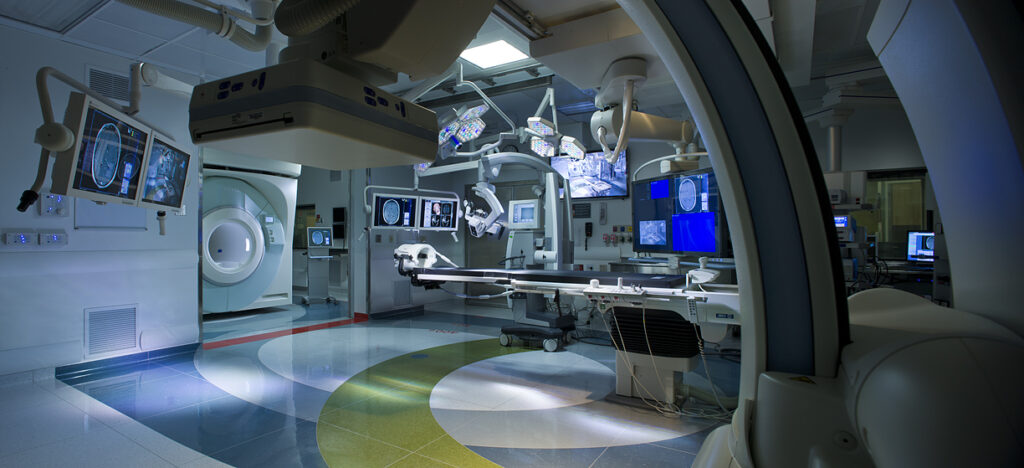Program Highlights
Mentorship
Our program recognizes the importance of mentoring for residents. One of our Associate Program Directors, Dr. Danielle Richman, serves as a dedicated faculty mentor for all of our first year residents. Each R2-R4 resident is assigned a dedicated faculty mentor to support them throughout their residency.
Some R1 specific events with the first year faculty mentor include:
- Quarterly class mentoring breakfast or lunch sessions
- Individual 1:1 mentor sessions 2x during the year
- First year class bonding event
Dana Farber Cancer Institute (DFCI)
Our close affiliation with the Dana Farber Cancer Institute and dedicated Cancer Imaging rotations provide residents with exposure to a breadth of common and uncommon malignancies and their treatments. There are abundant opportunities for learning and research at the intersection of the vast resources at DFCI and our residency.
Residents complete a dedicated 4-week Cancer Imaging rotation at Dana Farber Cancer Institute as third year residents, with the opportunity to spend more time as an elective or mini-fellow as fourth years. As senior residents, they have the opportunity to take full advantage of the unique educational opportunities, including reading advanced and complex cancer imaging ultrasound, CT and MRI cases, attending and presenting at subspecialty tumor boards and attending weekly Cancer Imaging teaching conferences.
Pathways and Extraclinical Tracks
Learn more about our unique senior resident pathways and extraclinical tracks.
Data Science Office
The Data Science Office is composed of a team of world-class machine learning scientists, software engineers, data engineers, infrastructure engineers, and medical doctors, that bring the best of the tech industry to healthcare. It combines a wealth of healthcare data with world-class computational resources and technical know-how to deliver unique solutions in close collaboration with our physician thought-leaders.
MESH Incubator
The MESH Incubator is a first-in-kind in-house creation group and physical prototyping lab at Mass General Brigham and Harvard Medical School. It is designed to capture key clinical needs on the ground level and accelerate solutions to produce patents and licensable intellectual property, launch products and services and provide fundamental education in innovation domains to trainees and staff. It is the first integrated innovation incubator of its kind in a medical training program and has expanded to serve the entire hospital system.
In addition to accessing open incubator space and equipment available for use by Mass General Brigham staff and trainees, residents rotate through the MESH Core and optionally the MESH Advanced Industry Consult and additional programs.
Through its programs, MESH teaches and instills the following skills in trainees and staff:
- Idea generation and validation
- Clinical and non-clinical 3-D printing
- Artificial intelligence and informatics
- Device and software prototyping
- Intellectual property
- Corporate structuring and entrepreneurship
- Investing
- MIT Sloan and Harvard Business School case design
- Grants, funding and starting a research enterprise
Clinical Quality Improvement Program (CQIP)
In 2017, the Accreditation Council for Graduate Medical Education required that residents “receive training and experience in quality improvement [and patient safety] processes” and emphasized that “experiential learning is essential” in this regard. In response to this, Brigham & Women’s Department of Radiology Quality & Safety team implemented a QI curriculum in September 2020 entitled The Clinical Quality Improvement Program (CQIP), an elective, fast-paced program taught by two instructors and supported by several project coaches that provides participants with the tools they require to lead QI efforts across the department.
The program involves four interactive didactic sessions spread over the span of 14 project weeks during which participants, in groups of 2-3, lead a multidisciplinary team through a process improvement project, learning the fundamentals of QI along the way. On the final day of the program, teams present their findings to department colleagues and leadership. Past projects have resulted in measurable and notable improvements in ED ultrasound workflow, examination ordering accuracy, and contrast reaction documentation and management. This course is considered a mandatory component of the Brigham and Women’s Residency Program to satisfy the required ACGME QI requirements, which residents can enroll in at a time of their choosing.
Advanced Multimodality Image Guided Operating (AMIGO)
https://www.brighamandwomens.org/research/amigo/advanced-multimodality-image-guided-operating-suite
The Advanced Multimodality Image Guided Operating (AMIGO) suite, encompassing 5,700 square feet, is divided into three separate yet integrated procedure rooms. The suite is designed so that multidisciplinary medical teams can move effortlessly throughout to access any of the advanced imaging and surgical technologies available, whether before, during, or after the procedure. AMIGO is one of the first operating suites in the world to integrate the use of this wide variety of advanced imaging technologies, including cross-sectional digital imaging systems such as CT and MRI; real-time anatomical imaging, such as x-ray and ultrasound; and molecular imaging, such as beta probes (detects malignant tissue by measuring sensitivity to beta radiation), PET/CT, and targeted optical imaging (imaging based on the nature of light).

BWH STRATUS Center for Medical Simulation
https://www.brighamandwomens.org/emergency-medicine/stratus/about-stratus-center
The Neil and Elise Wallace STRATUS Center for Medical Simulation is dedicated to advancing healthcare education, enhancing patient safety and improving clinical outcomes. The Brigham Radiology residency utilizes the STRATUS Center for various training sessions throughout the academic year, including:
- Breast biopsy simulation
- Cross-sectional interventional radiology US-guided procedures simulation
- Angio interventional radiology US-guided vascular access and suturing
- Advanced Cardiac Life Support (ACLS) and contrast-reaction simulation
- New England Roentgen Ray Society (NERRS) musculoskeletal ultrasound simulation session
- Optional R4 two- or four-week electives in simulation education at the STRATUS center
